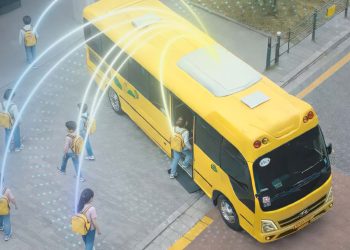Hyundai Motor Co. and the United Nations Development Program (UNDP) shared the recent developments of their joint ‘for Tomorrow’ project. In September 2020, Hyundai and the UNDP Accelerator Labs entered into a partnership to promote the Sustainable Development Goals (SDGs). The SDGs represent the 2030 Agenda for Sustainable Development, which would guide the worldwide development ventures over the coming years.
Under the partnership, the two companies launched ‘for Tomorrow,’ a project aiming to provide concrete solutions for environmental and socio-economic issues by advancing local sustainability practices and solutions worldwide. Furthermore, Hyundai added that its UNDP collaboration would foster and boost sustainable social entrepreneurship initiatives and innovations.
Grassroots Innovation
As part of the ‘for Tomorrow’ project, Hyundai shared the developers’ latest improvements, highlighting sustainable living solutions from grassroots innovations. Moreover, grassroots innovators from various countries presented their developments through the ‘for Tomorrow’ platform. Their submissions ranged from manual, field innovations to data-backed, digital solutions that solve numerous issues throughout their local communities.
Additionally, a UNDP Accelerator Labs Special Advisor, Joseph D’Cruz, said that the project’s primary goal is to accelerate SDGs’ progress. D’Cruz also stated that Hyundai and UNDP plan to help local innovators establish mobility, urban living, and waste management solutions. To this end, UNDP’s 91 Accelerator Labs contributed and extended its reach, enabling innovators to improve communities through sustainable means.
Sustainable Living Solutions
In Nigeria, Onah Amaka utilized her electrical engineering background to build and install solar-powered streetlights throughout her locality. The eco-friendly solar streetlights’ installation produced significant socio-economic improvements, including enhanced health and security. In addition to showcasing the solar energy technology benefits, the streetlamps also generated new business openings.
On the other hand, Nepal’s Sonika Manandhar and Tiffany Tong introduced electric buses, locally known as safa tempos. Although they currently face many obstacles, Manandhar and Tong developed the Green Energy Mobility (GEM), drawing Accelerator Lab’s interest. Besides combating climate change and offering a renewable public transportation alternative, the GEM also improves women drivers’ financial inclusion.
While in the UK, Cian Sherwin developed and tested re-icing machine prototypes that replenish ice in the Arctic. Sherwin co-developed the re-icing machine’s technology with Bangor University. They created the products to help several Wales communities adjust to rising sea levels due to melting icebergs. After finalizing the re-icing machines, the team would task indigenous Arctic groups to operate them.
“We hope these solutions will be the seeds of innovation that will make a better future,” said Thomas Schemera, Executive VP of Hyundai Motor. “In line with our brand vision, ‘Progress for Humanity,’ we will continue to contribute to becoming a sustainable society with a sense of corporate citizenship.” The Hyundai official also emphasized that corporate citizenship is vital to providing global communities with better life quality. Lastly, Hyundai announced that it had accepted many other innovations from over thirty countries since it launched ‘for Tomorrow.’







